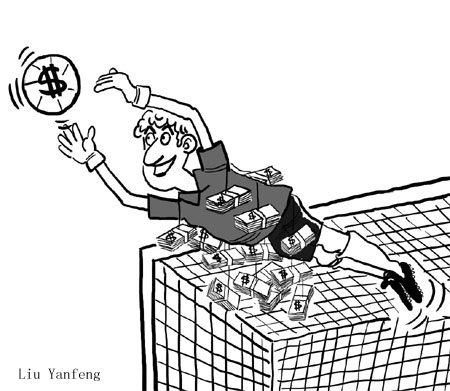The corrupting influence of money in sport

Money is corrupting the Corinthian ethos and making nonsense of competitive sport.
What newspapers call sports sections nowadays often look as if they should be tacked on to the financial pages. One "sports" story after another in recent weeks has been not about the bewitching things athletes can do, but instead about the love of money that we are told is the root of all evil, and that surely now infects all sports organizations. Even the hallowed Marylebone Cricket Club has now succumbed in sordid fashion.
By definition, professional sport has always been played for reward, though often for not much. No one misses the days when county cricketers lived in genteel poverty at best, and the greatest footballers in the land were kept in their place by the maximum wage. Maybe we should be pleased that there are now players earning - or at least making - GBP120,000 ($242,000) a week. But can anyone feel good reading the endless columns that aren't about football at all, but about buying and selling players? Or about buying and selling clubs? The sports writer David Conn has gruesomely detailed the fortunes made by football club directors. Martin Edwards pocketed GBP93 million for selling his shares in Manchester United, Ken Bates GBP17 million for Chelsea (nice work, given that he acquired his holding for GBP1), and now David Dein GBP86 million at Arsenal. If Alisher Usmanov were to acquire the whole of Arsenal it would mean that the four leading Premier League clubs would be in foreign hands - with Chelsea already owned by another Russian, and Manchester United and Liverpool by Americans. Here is an issue that the Tories here in the UK could take up to revive their party's flagging fortunes, and something worthier than screeching about asylum seekers.















